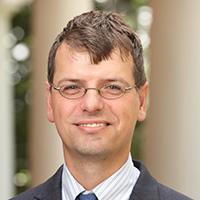
Communications and Signal Processing Seminar
Transport and other Lagrangian Transforms for Signal Processing and Machine Learning
This event is free and open to the publicAdd to Google Calendar

Abstract
Favorable data representation methods can dramatically simplify the solution of numerical problems at the core of signal processing, computer vision, and machine learning. Fourier transforms, for example, can be very useful when solving linear filtering problems while Wavelet transformation methods can elucidate transient properties buried in signals and images. In the machine learning field, kernel methods are also known to simplify certain regression tasks such as clustering and classification. We describe an emerging set of Lagrangian signal/image transform methods, with welldefined forward and inverse operations, that can simplify certain nonlinear signal processing and machine learning problems. While most mathematical representation methods used in signal processing and image analysis compare signal/image intensities at fixed coordinates, the new set of mathematical transformation methods we propose can compare intensities across signal locations/pixel coordinates and are thus naturally related to optimal transportation methods. The new framework also has interesting mathematical properties including the ability to convert coordinate shifts in signal domain into amplitude modulations in transform domain. The new signal transforms can also be shown to convexify signal classes and render certain nonlinear problems linearly separable and thus can offer a simpler, more efficient, and robust solution to optimization-based data analysis problems. Examples related to signal detection and estimation, image reconstruction, machine learning, and transport-based image morphometry are discussed to show the advantages and disadvantages of the approach.
Biography
Dr. Rohde double majored in physics and mathematics earning his bachelor’s degree from Vanderbilt University in 1999. He obtained an MS degree in ECE from Vanderbilt University in 2001, and a Ph.D. degree in Applied Mathematics and Scientific Computation from the University of Maryland in 2005. Dr. Rohde is currently an associate professor in BME and ECE at the University of Virginia. His research is/has been funded by the NSF, NIH, NRL, and AHA. He is/has been an editorial board member/associate editor for IEEE Transactions on Image Processing, IEEE Signal Processing Letters, IEEE Journal of Biomedical and Health Informatics, Cytometry A, and BMC Bioinformatics. He has served as an associate editor/area chair for the IEEE ICIP, IEEE ISBI, and MICCAI conferences. Dr. Rohde served as a member of the IEEE Biomedical Imaging and Signal Processing Technical Committee from 2010-2016 and was a council member for the International Society for Advancement of Cytometry (ISAC) from 2014-2016. Other awards and honors he has received include the Pitt/CMU William E. Brown Outstanding Medical Scientist Training Program Mentor Award 2016, and Consumer Electronics Show (CES) 2019 honors in the “Tech for a better world” category. He currently serves as a regular member of the Biodata Management and Analysis (BDMA) National Institutes of Health study section, and is the program co-chair of the IEEE International Symposium on Biomedical Imaging (ISBI) 2021, Nice, France.
 MENU
MENU 
